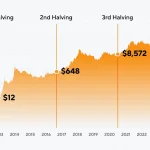11% of domestic violence cases are committed by girlfriends against their boyfriends, a new study has revealed.
In this report, you will also read the following:
… National Economic Cost of Domestic Violence Is over 12 billion Dollars Annually
…What is domestic violence?
…UN description of domestic violence
… Forms of domestic violence between boyfriends and girlfriends
…Why the increase in girlfriends’ domestic violence against boyfriends
… Why violence against men is under-reported
… Effects of domestic violence on boyfriends and society
… Causes of domestic violence between boyfriend and girlfriend
… Reasons boyfriends remain in violent or abusive relationships.
… How to stop domestic violence between boyfriend and girlfriend
The study was conducted by the research team of a PR company, Teksight Edge Limited.
Its findings show that out of the total respondents to its polls, 82% are between ages 25 and 39.
Similarly, a study by the National Center for Biotechnology Information (NCBI) has equally found that at least, 4 in every 10 males were victims of domestic violence from females.
It said approximately 1 in 10 men of 18 years or older experience domestic violence.
The report said annually, domestic violence leads to over 1500 deaths in the United States alone.
Likewise, in India, it is estimated that out of “100 cases of domestic violence, approximately 40 cases involve violence against men.”
The above statement was the summation of Aparajita Balaji, a Fourth year law student of Vivekananda Institute of Professional Studies, affiliated to Guru Gobind Singh Indraprastha University.
In Nigeria, recent report by the Lagos State Domestic and Sexual Violence Response Team (DSVRT) shows that 194 males in Lagos were victims to domestic violence from their partners within 6 months.
The females committed the violence against their male partners between January, 2021 and June 2021, the report said.
The report also revealed that this figure is 44.33 per cent higher than the 108 assault cases reported by males from January 2020 to June 2020.
ALSO READ: 5 Smartphone Spy Apps To Monitor Your Boyfriend, Girlfriend Or Employee
READ ALSO: Laying The Infrastructure For Smartphone Surveillance At Work
ALSO READ: Nigeria Ranks Best In Africa On ICT Integration As GBS Sector Grows
Nevertheless, these findings above are, obviously, lower by margin, than the domestic violence caused by males against females.
This is not exempting those by boyfriends against girlfriends.
For instance, the NCBI study cited above also revealed that, even though 4 in every 10 [boyfriends] or males were victims of intimate partner violence from their girlfriends, conversely, girlfriends experienced domestic violence from boyfriends on a scale of 6 in every 10 females.
The findings by the Teksight Edge research team equally found that though 11% domestic violence were caused by girlfriends against their boyfriends, 14% violence was caused by boyfriends against their girlfriends.
In the case of domestic violence between husbands and wives, the report found out that while only 5% domestic violence was meted out against husbands by their wives, a whopping 19% violence was perpetrated by husbands against their wives.
Also, the report said that 80% of the respondents said domestic violence abusers are predominantly male while 20% said the abusers are predominantly females.
This further shows that any of the genders can either be the victim or the abuser.
Although domestic violence cases are predominantly males and though it is not yet enough to talk and keep talking about domestic violence against females, it is equally important to talk about the less talked about domestic violence against the male gender, more so, violence against boyfriends by girlfriends.
Therefore, this report tries to raise more awareness on the dangerously rising cases of girlfriends’ violence against boyfriends.
In doing this, the report takes a look at some studies in this line.
For instance, a bibliographic study by Fiebert (2007), in a report, “Controlling domestic violence against men,” examined 209 studies (161 empirical studies and 48 reviews/analysis of approximate sample size of 201,500).
It found that women are physically aggressive, in fact, more violent than men in their relationships.
This implies that some girlfriends are more physically aggressive and more violent against their boyfriends in their relationships!
Recent studies have equally revealed that the domestic violence curve is dangerously tilting to more boyfriends increasingly falling victims to violence from their girlfriends.
But before we dive deeper into that, let us understand what the term domestic violence is all about.
What is domestic violence?
The United Nations defined Domestic Violence, also referred to as ‘Domestic abuse,’ or ‘intimate partner violence,’ as “a pattern of behavior in any relationship that is used to gain or maintain power and control over an intimate partner.”
Operationally, it is a relationship abuse between a boyfriend and his girlfriend which involves coercion, force, or attempting to gain control over each other.
This violence can be physical, sexual, emotional, verbal, economic, or psychological.
It can also involve threats or specific actions that most times result in injuries and in severe cases, death.
Ways your boyfriend or girlfriend can be violent to you:
There are many ways partners can met out violence which can become domestic violence to each other.
The UN report on violence aptly captures them as follows:
- Embarrass or make fun of you in front of your friends or family?
- Put down your accomplishments?
- Make you feel like you are unable to make decisions?
- Use intimidation or threats to gain compliance?
- Tell you that you are nothing without them?
- Treat you roughly—grab, push, pinch, shove or hit you?
- Call you several times a night or show up to make sure you are where you said you would be?
- Use drugs or alcohol as an excuse for saying hurtful things or abusing you?
- Blame you for how they feel or act?
- Pressure you sexually for things you aren’t ready for?
- Make you feel like there is “no way out” of the relationship?
- Prevent you from doing things you want – like spending time with friends or family?
- Try to keep you from leaving after a fight or leave you somewhere after a fight to “teach you a lesson”?
According to the UN report, these forms of violence can make the victim show the following behavious:
- Sometimes feel scared of how your partner may behave.
- Constantly make excuses to other people for your partner’s behavior.
- Believe that you can help your partner change if only you changed something about yourself.
- Try not to do anything that would cause conflict or make your partner angry?
- Always do what your partner wants you to do instead of what you want?
- Stay with your partner because you are afraid of what your partner would do if you broke up?
The report further categorized the domestic violence according to physical, emotional, sexual, economic and psychological abuses.
It explained these categories thus:
Emotional abuse:
Emotional abuse includes undermining a person’s sense of self-worth through constant criticism; belittling one’s abilities; name-calling or other verbal abuse; damaging a partner’s relationship with the children; or not letting a partner see friends and family. You may be in an emotionally abusive relationship if your partner:
- Calls you names, insults you or continually criticizes you.
- Does not trust you and acts in a jealous or possessive manner.
- Tries to isolate you from family or friends.
- Monitors where you go, whom you call and with whom you spend your time.
- Does not want you to work.
- Controls finances or refuses to share money.
- Punishes you by withholding affection.
- Expects you to ask permission.
- Threatens to hurt you, the children, your family or your pets.
- Humiliates you in any way.
Psychological abuse:
Psychological abuse involves causing fear by intimidation; threatening physical harm to self, partner or children; destruction of pets and property; “mind games”; or forcing isolation from friends, family, school and/or work.
Financial or economic abuse:
Financial or economic abuse involves making or attempting to make a person financially dependent by maintaining total control over financial resources, withholding access to money, and/or forbidding attendance at school or employment.
Physical abuse:
Physical abuse involves hurting or trying to hurt a partner by hitting, kicking, burning, grabbing, pinching, shoving, slapping, hair-pulling, biting, denying medical care or forcing alcohol and/or drug use, or using other physical force. You may be in a physically abusive relationship if your partner:
- Damages property when angry (throws objects, punches walls, kicks doors, etc.).
- Pushes, slaps, bites, kicks or chokes you.
- Abandons you in a dangerous or unfamiliar place.
- Scares you by driving recklessly.
- Uses a weapon to threaten or hurt you.
- Forces you to leave your home.
- Traps you in your home or keeps you from leaving.
- Prevents you from calling police or seeking medical attention.
- Hurts your children.
- Uses physical force in sexual situations.
Sexual abuse:
Sexual Abuse involves forcing a partner to take part in a sex act when the partner does not consent. You may be in a sexually abusive relationship if your partner:
- Accuses you of cheating or is often jealous of your outside relationships.
- Wants you to dress in a sexual way.
- Insults you in sexual ways or calls you sexual names.
- Has ever forced or manipulated you into having sex or performing sexual acts.
- Holds you down during sex.
- Demands sex when you are sick, tired or after beating you.
- Hurts you with weapons or objects during sex.
- Involves other people in sexual activities with you.
- Ignores your feelings regarding sex.
Stalking:
Stalking involves any pattern of behavior that serves no legitimate purpose and is intended to harass, annoy, or terrorize the victim. Typical stalking activities include repeated telephone calls, unwelcome letters or gifts by mail, surveillance at work, home and other places that the victim is known to frequent. Stalking usually escalates.
Anybody can be either a victim of perpetrator of domestic violence, boyfriends and girlfriends not exempted.
Further on this, below is what you should know.
What you should know:
Research in the field of domestic violence has shown that boyfriends and girlfriends act violently in relationships at about the same rate.
They are likely to instigate violence against each other.
Consequently, about half of all domestic violence occurs with both partners abusing each other!
Nevertheless, domestic violence by girlfriends or females as a whole against their boyfriends or males in general is on the increase, even though it is not a new phenomenon.
It is, therefore, important that we look at the causes of this sudden increase.
Causes or why the increase in girlfriends’ violence against boyfriends:
Causes of domestic violence against boyfriends are numerous. Among them is the desire for control, resulting from anger management issues. Others are low self-esteem, jealousy, inferiority complex, personality disorders, learned behavior as well as from alcohol or substance abuse.
Others are financial hardship and unemployment.
Also, reasons why the abuse is on the increase abound. Some of them include, increase in the number of females becoming economically independent, favourable laws that are against the males, changing power dynamics and control over economy and resources, a post by Legaldesires.com has revealed.
According to the post, “This change in power dynamics will also affect relationships between men and women, where men are afraid of losing power and women are excited by their empowered position.”
Meanwhile, despite this dangerous increase, violence against males remain under-reported and the reasons are not far-fetched.
Why Violence Against Men Is Underreported:
Violence against men is under-reported because of many reasons.
Foremost among them are the social system and values attached to men.
These factors hinder men from sharing and reporting domestic violence and abuse.
In many mythical ontology, and depicted in literatures and other forms of expressions, women are viewed as the weaker gender. They are also inferior while men are powerful, aggressive and superior.
This belief systems view women to be always on the receiving end of violence and oppressions while men are always the perpetrators.
Therefore, the idea that men could be victims of domestic abuse and violence is so unthinkable.
Even when they try to report or narrate their problems, torture, struggle, and harassments, most people either don’t believe them or they are mocked.
Acceptance of violence by women on men is generally viewed as an insult to the man’s superiority and masculinity.
In fact, other men could view it as a disgrace to the men folk.
Consequently, many men do not even attempt to report the violence.
As a result, the violence leaves negative impact on them and by extension, the society.
This is because human beings tend to react to other issues as a result of their current state at time.
So, if a person is affected emotionally, psychologically or otherwise, there is a 90 per cent chance that such a person will react to other issues from the way they feel.
Here are more findings on the effect of violence against boyfriends.
Effects of violence against boyfriends:
Domestic violence is not something that just goes away!
Studies have shown that a boyfriend who witnesses violence from his girlfriend within the first year of their relationship will likely continue to witness domestic violence all through his life so long as he remains in such relationship.
This was the findings of a study by Save Family Foundation (Sarkar et al., 2007), which interviewed 1,650 husbands between the ages of 15 and 49 years, selected through random sampling using a schedule adapted from the WHO multicountry study on husband’s health and domestic violence.
The study revealed that husbands who experienced some form of violence during their first year of marriage continued to experience the same for the rest of their lives.
It also found that a high proportion of males who experienced domestic violence were well educated and earning good money.
Meanwhile, you might be wondering why boyfriends remain in violent relationships.
Why boyfriends remain in abusive relationships:
The study revealed that men in general remain in abusive relationships for the following reasons.
- Belief and hope that things will get better.
- Fear of losing social respect like being called a coward, impotent, or a failure.
- Fear of losing love.
- Belief that it’s their sole responsibility to make it work.
- Fear of blame if things fall apart.
- Fear of losing their children, where children are involved.
Effects of Domestic Violence on the victim Girlfriend or Boyfriend):
Domestic violence causes worsened psychological and physical health, decreased quality of life, decreased productivity, and in some cases, mortality.
National cost of domestic violence:
The national cost of domestic violence is huge, financially. According to NCBI, the national economic cost of domestic violence is estimated to be over 12 billion dollars per year.
This is because, domestic violence victims typically experience severe physical, mental or emotional and psychological injuries requiring care at a hospital or clinic.
Consequently, the cost to individuals and society is significant especially in terms of medical care services.
“The national annual cost of medical and mental health care services related to acute domestic violence is estimated at over $8 billion. If the injury results in a long-term or chronic condition, the cost is considerably higher.”
How to stop domestic violence against boyfriends or girlfriends:
Step 1: Don’t engage with the abuse: When your abuser abuses you, it is natural to want to retaliate. But you shouldn’t. Instead, politely call it out and ask that it stops.
Step 2: Call Out Abusive Behavior:
The first step is to name out loud the abuse. Discuss the abuse with your partner.
You can say the following:
“When you say xyz, it hurts my feelings.”
“That statement about PQR is hurtful to me.”
“I don’t like it when you talk to me like that.”
“That comment you just made doesn’t sit well with me”
“When you say XYZ, I feel criticized unnecessarily.”
“Comments like XYZ make me feel bad about myself,” etc.
Step 3: Use clear and polite language to demand a complete stop of such violence:
Boyfriends or girlfriends can use gentle but clear language to demand that the violence stops.
Example can be like this: “I need you to stop saying xyz because it makes me feel ZYX.”
Step 4: Remain Calm even if the abuser continues:
Step 5: Set boundaries and enforce them:
Also:
Step 6: Report abuse to appropriate authorities if it continues.
Step 7: Re-consider continuing the relationship.
Finally:
Step 8: Walk away if its life threatening and ensure you report it to the appropriate authorities.
Found this interesting? Share!


























 and then
and then